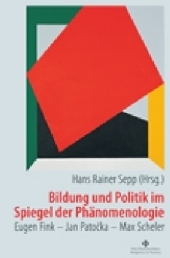
Geopolitics of Central and Eastern Europe in the 21st Century
From the Buffer Zone to the Gateway Zone
Sorozatcím: Studies in Politics, Security and Society; 37;
- Kiadói listaár EUR 45.35
-
18 808 Ft (17 913 Ft + 5% áfa)
Az ár azért becsült, mert a rendelés pillanatában nem lehet pontosan tudni, hogy a beérkezéskor milyen lesz a forint árfolyama az adott termék eredeti devizájához képest. Ha a forint romlana, kissé többet, ha javulna, kissé kevesebbet kell majd fizetnie.
18 808 Ft

Beszerezhetőség
Megrendelésre a kiadó utánnyomja a könyvet. Rendelhető, de a szokásosnál kicsit lassabban érkezik meg.
Why don't you give exact delivery time?
A beszerzés időigényét az eddigi tapasztalatokra alapozva adjuk meg. Azért becsült, mert a terméket külföldről hozzuk be, így a kiadó kiszolgálásának pillanatnyi gyorsaságától is függ. A megadottnál gyorsabb és lassabb szállítás is elképzelhető, de mindent megteszünk, hogy Ön a lehető leghamarabb jusson hozzá a termékhez.
A termék adatai:
- Kiadás sorszáma Neuausg., New edition
- Kiadó Peter Lang
- Megjelenés dátuma 2021. január 1.
- ISBN 9783631819159
- Kötéstípus Keménykötés
- Terjedelem242 oldal
- Méret 21x156x216 mm
- Súly 432 g
- Nyelv angol
- Illusztrációk 56 Abb. 745
Kategóriák
Rövid leírás:
Central and Eastern European region defined by the socialist past has transformed in the 21st century. We must abandon the paradigms of the Cold War period within geopolitical thought. The key question of the 21st century is whether a new gateway zone of the present forming World-Island can be developed along a north-south Baltic-Adriatic axis.
TöbbHosszú leírás:
This book seeks to answer how we can reposition the geopolitical situation of the Central and Eastern European (CEE) region in the 21st century. CEE region defined by the socialist past has transformed in the 21st century. Within geopolitical thought we must abandon the paradigms of the Cold War period. The role of a gateway zone to entail links between the great powers. In the CEE region it is possible to bound four gateway regions along the north-south Baltic-Adriatic axis (Baltic, North Adriatic, Central European and Eurasian) and two gateway regions along the southeast-east European axis (Mediterranean and Black Sea). The key question of the 21st century is whether a new gateway zone of the present forming World-Island can be developed along a north-south Baltic-Adriatic axis.
TöbbTartalomjegyzék:
Cleavages of the historic Central and Eastern European region - buffer zone or gateway zone - renaissance of orthodox geopolitics - geo-economics - Larger West - Eurasian supercontinent - spatial organization of the new Central and Eastern European gateway zone - Central Eurasia and World-Island in the 21st century
Több

The Lutheran Church and the Civil War
14 052 Ft
12 928 Ft











